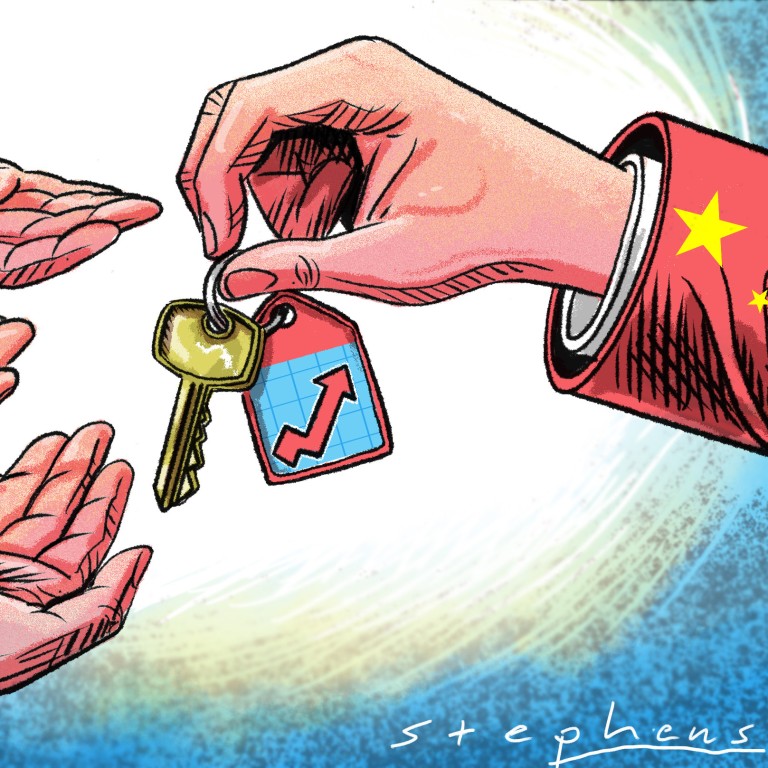
To reboot China’s economy, Beijing must have the confidence to let go
- Fear of losing control is holding Beijing back from much-needed economic reforms, yet their success would shore up the central government’s credibility
- Reforms must address local governments’ dependence on property development, the private sector environment and consumption
Yet such reforms could secure the social and economic benefits needed to strengthen the credibility of the authorities.
The government’s actions so far have been too little, too late, largely because the systemic solutions are seen as contrary to socialist ideology.
Because of mounting debt problems, local governments are unable to step up infrastructure investments to counter the slump. These issues are being addressed separately but they are linked.
This predicament emanates from a structurally misaligned fiscal system that not only failed to generate adequate revenue but also does not match the revenue needed with the expenditure responsibilities of local governments.
The central government gets most of the fiscal revenue, but local governments are burdened with the bulk of the expenditure responsibilities.
If the property market cannot drive growth in the coming years, then more is needed from the private sector. The leadership is trying to assure the business community of fair market access and financial support.
How to fix China’s economy? Investors are unsure and that’s a problem
Modest liberalisation efforts have been under way for years, but the focus has been on smaller and medium-sized cities, leaving the restrictions largely intact in China’s mega-cities such as Shanghai, Beijing and Guangzhou.
But the leadership has been reluctant to do so, since regulating the location of the population is a prerogative of the centralised system that is not easily abandoned.
China is losing sight of the 3 things it needs to keep opening up
The factors that shaped China’s remarkable growth – rapid urbanisation driven by export-oriented industrial expansion and massive property development – are no longer viable, but the potential for robust growth still exists.
The reforms, however, that would make this possible have not been undertaken because of the state’s desire to preserve its control over key resources (financial and labour) and private sector activities.
But history can repeat itself. Among the famous sayings linked to Deng Xiaoping when he launched China’s reform process more than four decades ago is: “It doesn’t matter if a cat is black or white, as long as it catches mice.” Deng had the foresight to realise that achieving more rapid growth through pragmatic policies that might hit at the boundaries of socialist ideology would strengthen, rather than undermine, party legitimacy.
The coming Third Plenum, held every five years to outline the government’s longer-term economic objectives, provides a timely opportunity to signal such a change.
Yukon Huang is a senior fellow at the Carnegie Endowment for International Peace and author of “Cracking the China Conundrum: Why Conventional Economic Wisdom is Wrong”.



